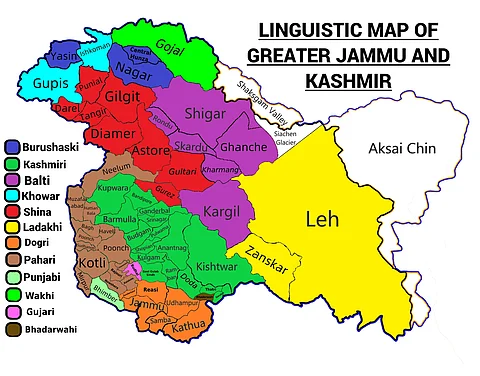

In several states of India, several voices have gained momentum to preserve the mother tongues from eradication. This is a silent issue which needs more individual, political, organisational and community level support to survive.
In many states, the teaching of mother tongue has been eliminated and damaged linguistic culture with high risk of increased fading in the smart era. Similarly, in the Union Territory of Jammu and Kashmir, there are several languages which are suffering from hazardous extinction in the future.
In the Chenab valley, Kashmiri, Urdu, Kishtwari, Bhaderwahi, Sirazi, Bhallesi and other local languages are spoken but there is an alarm about their possible extinction due to neglect.
For reviving these languages, they need to be introduced in schools especially from the kindergarten level. Jammu and Kashmir is diverse, not only linguistically and ethnically but also linguistically. Each region and sub-region have a several different languages.
While Kashmiri, Dogri and Gojri languages are more dominant in use as speaking mediums, less spoken languages such as Bhaderwahi, Kishtwari, Sirazi are fading and demand more efforts for preservation.
This is not to say that the more widely spoken local languages are getting the due attention. Interactions with several youngsters from Kashmiri speaking homes revealed that the new generation is becoming increasingly distanced from the mother tongue.
The reasons are varied. In some cases, the parents encourage Urdu or English over Kashmiri as these are linked to academics and to the notion of ‘modernity’ and ‘progress’. Some children deliberately avoid speaking Kashmiri, worried that it may impair their Urdu language accent. Their knowledge remains brief, limited to understanding the spoken Kashmiri.
No! They don't allow me to speak in it before family gatherings and relatives. The reason behind this is a child who speaks Kashmiri in these events is seen as a "Chapri" [It has become a gesture of lowness]. However, both the parents and the society may contribute for its easy revival, but it is replenishing so far.
Much worse is the fate of the many local languages from Chenab Valley, like Kishtwari, which are fading in neglect.
Their fate can be reversed by introducing them in schools, by publishing books and by translating rich texts from other languages to Kishtwari and other languages to renew interest.
The revival of mother tongue cannot be achieved at an individual level but contribution of regional government along with society is necessary to support the revival.
Policies regarding it should be included in our education curriculum. Perhaps, it is a tough time as many children have lost their real taste of tongue due to non-serious parental exposure towards their mother tongue.
Have you liked the news article?